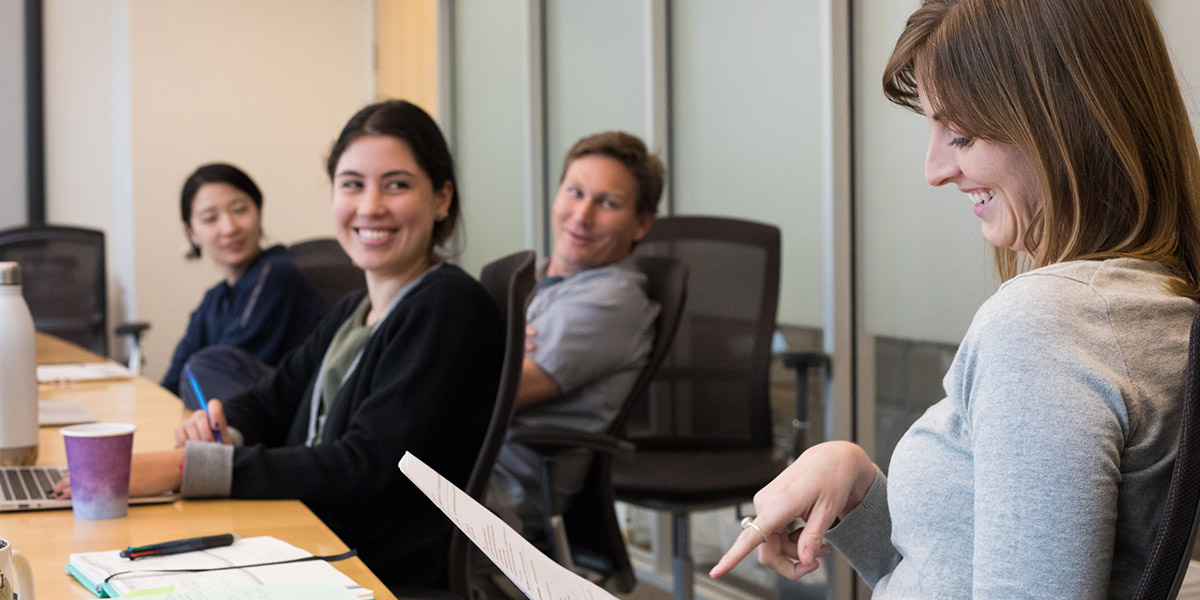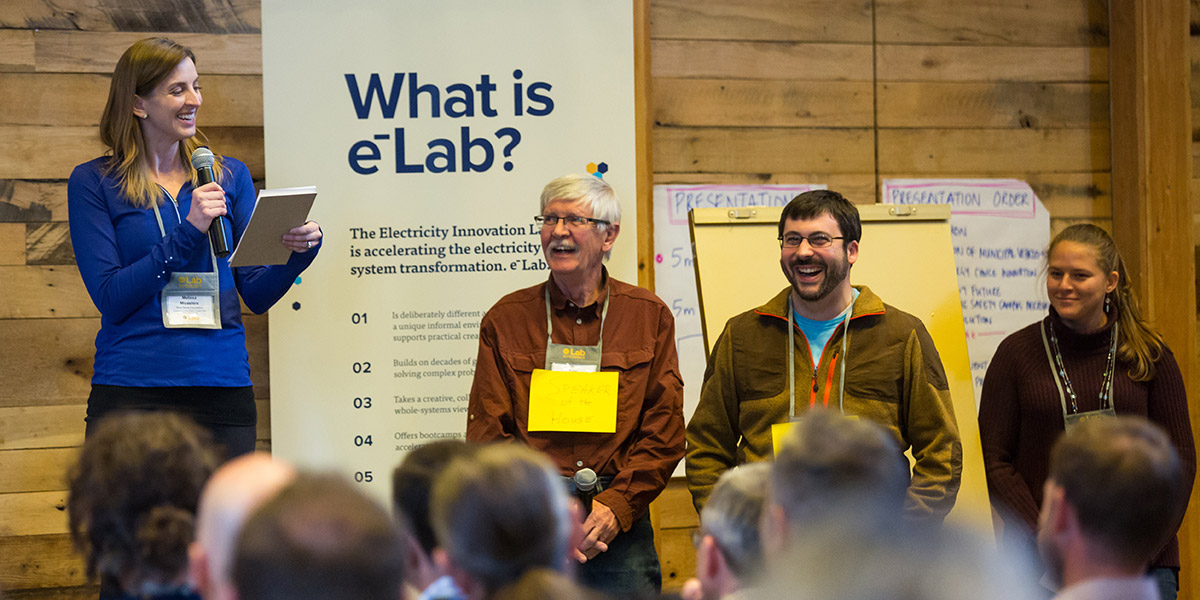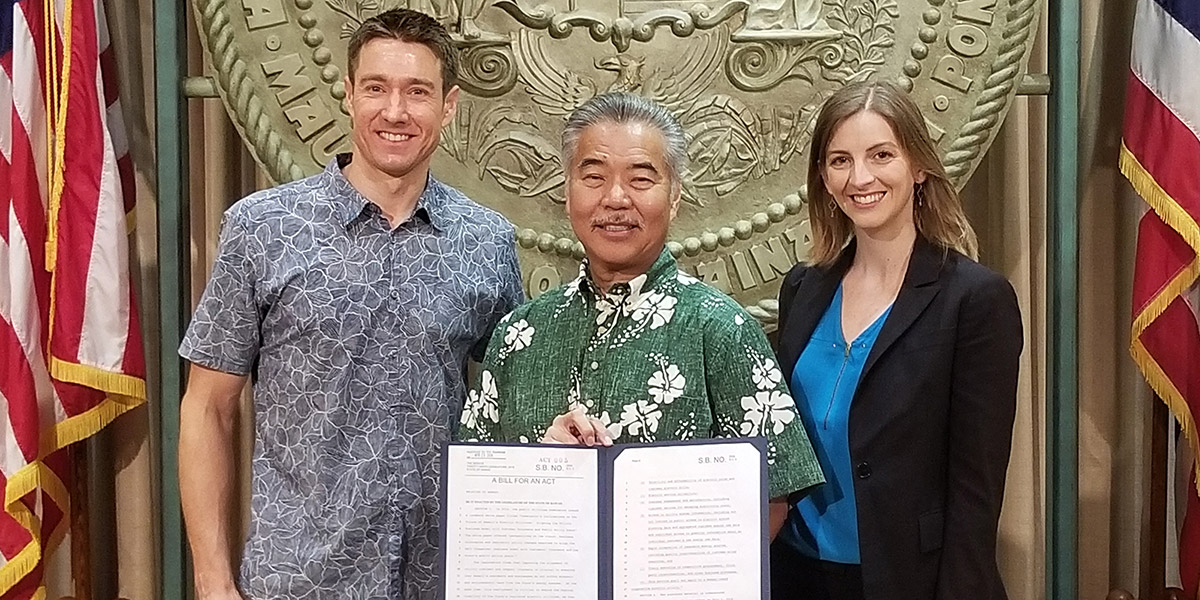Melissa Miyashiro, Blue Planet Foundation

“We’re trying to overcome the status quo,” says Melissa Miyashiro of Blue Planet Foundation. “Our mission is to clear the path for one hundred percent clean energy. There is barrier after barrier to get there, so our work is about clearing the obstacles.”
Blue Planet Foundation is a nonprofit organization powering this transition in Hawai‘i, leading the way through advocacy and community outreach. As chief of staff, Miyashiro manages the firm’s policy work, helping to shape clean energy policy. She also oversees legal tasks involved in running a nonprofit.
Connected to something bigger
Miyashiro’s concern for the environment took hold when she learned in elementary school about deforestation of the Amazon rainforest. She says, “It was the first time I was aware that our local choices have far-reaching impacts. When I was a teenager, my family lived in Peru, expanding my view of the world, and forming an awareness of my being connected to something bigger than myself.”
These lessons lit the spark of a lifelong commitment to caring for the planet, its people, and its creatures. Through her work as an environmental scientist after college, she considered attending law school, to make a real impact with skills she could acquire there, such as analytical thinking, crafting compelling messages, and solving complex problems.
“I was drawn to the William S. Richardson School of Law for its renowned environmental law program,” she says. “Small class sizes allowed close collaboration and learning opportunities from the school's dedicated and impressive faculty. The environmental law program provided career support, working with students to place them in relevant internships and jobs after graduation.”
Diving into environmental law
Before joining Blue Planet, Miyashiro was a post-graduate legal fellow with CGAPS, the Coordinating Group on Alien Pest Species. CGAPS is a project of the Pacific Cooperative Studies Unit of UH Mānoa and a collaboration of agencies and non-governmental organizations working to protect Hawaiʻi from invasive species. On behalf of CGAPS, she worked at the state Department of Agriculture’s plant quarantine office, helping to review plant import regulations in order to prevent such problems asʻōhiʻarust fungus, a disease which has decimated rose apple trees on Hawai‘i Island and can afflict other trees such as guava and ʻōhiʻa.
Working with scientists, Miyashiro provided legal support for the agency in guarding against invasive species. “It’s a complicated area,” she says, “because some importation is preempted by federal law, beyond state-level oversight. I researched legislation for specific issues, but I also worked internally through state administrative regulation.”
“The work was really interesting,” she continues. “There weren’t many attorneys working specifically on these issues, so I had the opportunity to dive into a fascinating and novel area as a recent graduate.”
She served as legal fellow for just over a year in a full-time position funded by Hau‘oli Mau Loa Foundation, whose mission includes promoting stewardship, preservation, and protection of the natural environment. Miyashiro’s fellowship through CGAPS is part of a ten-year commitment by the foundation to prevent invasive pests from entering the state of Hawaiʻi. The foundation has partnered with CGAPS since 2011, providing support for numerous projects that aim to move the needle on invasive species work.
“The Legal Fellows program has been a win-win for the fellows and the state departments where they’ve served,” says Brant Chillingworth, Senior Program Officer for Hau‘oli Mau Loa Foundation.
Miyashiro earned her environmental law certificate with her degree from the UH Law in 2010. “Full-time positions in the field can be hard to come by,” she says, “so the fellowship was an opportunity to get actual experience to equip me down the line. For legal positions, government jobs can be difficult to get right out of law school. You need experience first.”
Passion for the mission
Miyashiro remains optimistic about the role of government in solving tough challenges, although she admits, “It can be very challenging. There are so many layers and considerations related to politics and timing. Luckily, law school trains you to be adaptable and solve a problem from different angles. I find it fulfilling to analyze problems in this way, trying something different or seeking a refined result. Interestingly, my work in government helped prepare me for the transition to the nonprofit sector and a whole new suite of challenges and opportunities.”
“The enormity of the climate change issue can be discouraging,” she says. “The outlook from the news can be a little bit gloomy. The headlines say we’re running out of time, but I’m proud that Hawai‘i has stepped up in a leadership role on clean energy. We are the first state in the nation to commit to reaching one hundred percent clean energy and achieving carbon neutrality by 2045. Still, it’s going to take big actions, not incremental steps. My commitment and passion to Blue Planet Foundation’s mission is what fuels me. It’s sometimes an uphill battle, but I’m committed to this work. I remain hopeful that we can tackle our climate change challenge, and Hawai‘i can lead the way.”
Questions? / More Information
If you would like to learn how you can support UH students and programs like this, please contact us at 808 376-7800 or send us a message.


